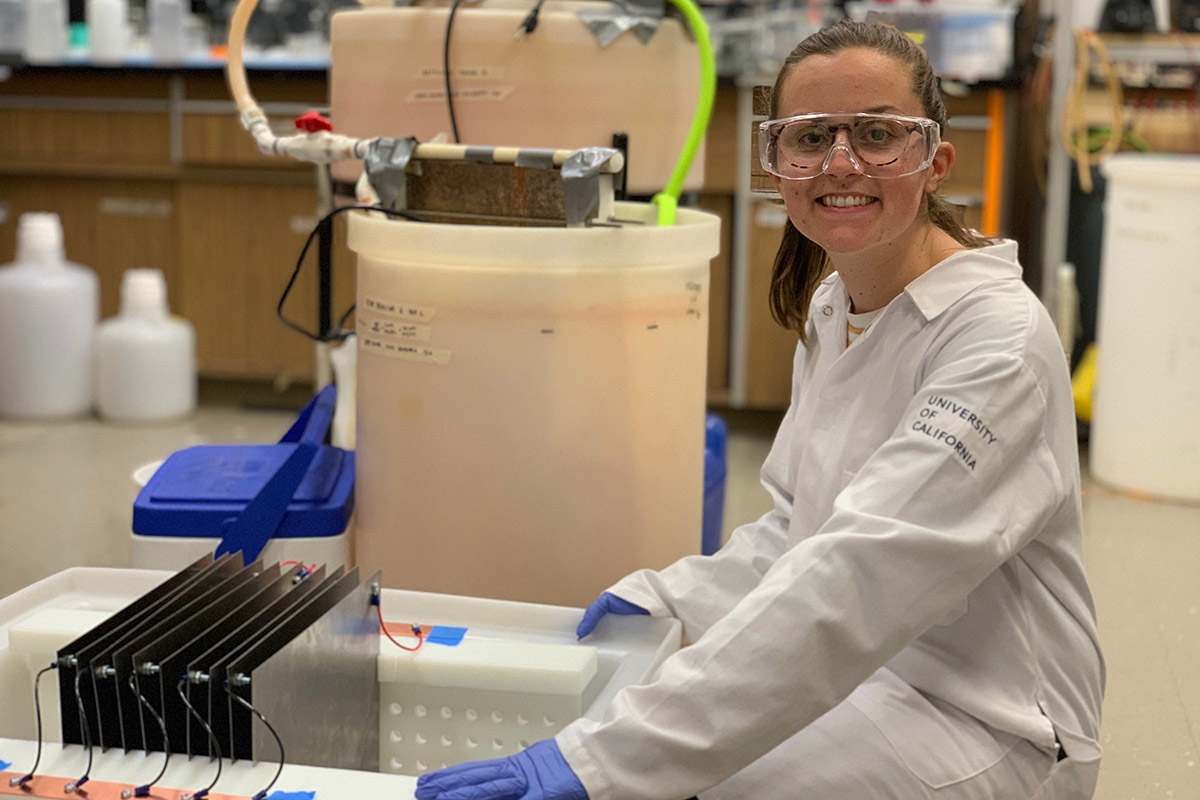
Following the Life-Giving Flow
Marcia Faye
Sara Glade (CHE, M.S. ENVE ’15) says that she took for granted having accessible, safe, and affordable drinking water as a normal part of daily life until she visited Haiti and Nicaragua through the Engineers Without Borders USA Illinois Institute of Technology Student Chapter as an undergraduate.
She won multiple water-related awards and scholarships while at Illinois Tech and upon entering the Ph.D. program in environmental engineering at the University of California, Berkeley, she received a National Science Foundation Graduate Research Fellowship. As a member of a team headed by Berkeley’s Ashok Gadgil, professor of civil and environmental engineering, she was able to explore an affordable method to remove arsenic from drinking water.
“In California, many small, low-income communities are disproportionately impacted by arsenic-contaminated drinking water, because they lack access to treatment solutions,” says Glade. “The technology I investigated in my research is called ElectroChemical Arsenic Remediation (ECAR), a technology studied extensively in the Gadgil Lab at UC Berkeley and previously implemented in India. ECAR has potential as a technology lower in cost and easier to manage than existing alternatives; however, the design of ECAR used in the India context needed to be modified before testing in the United States.”
Glade designed, implemented, and field tested the modified treatment technology on a farm in the historically Black community of Allensworth in California’s Central Valley. While the region is considered to be one of the most agriculturally productive in the world, many of its communities, such as Allensworth, where the farmworkers live and their children go to school, have to ship in expensive bottled drinking water because the tap water is filled with arsenic and other groundwater contaminants.
“Our results showed that we were able to successfully remove arsenic from initial concentrations of [about] 150 micrograms per liter to below the Environmental Protection Agency Maximum Contaminant Level of 10 micrograms per liter,” says Glade. She also assisted testing in Allensworth a next-generation version of ECAR known as Air Cathode Assisted Iron Electrocoagulation, which significantly decreases the purification time.
Glade graduated from Berkeley last December and was accepted as a postdoctoral associate at the University of Colorado Boulder, where she is working on projects within the Resilient Infrastructure with Sustainability and Equity interdisciplinary research theme.
Photo: Courtesy of Sara Glade